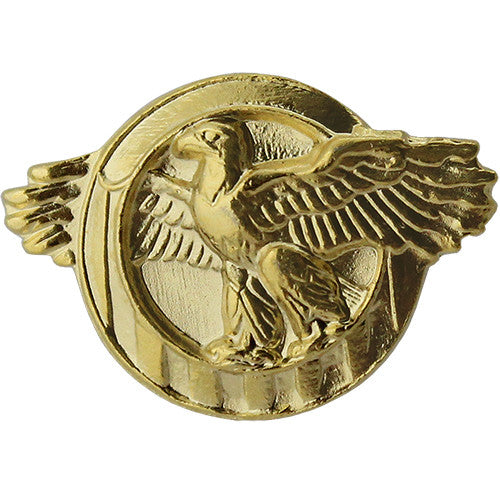World War II Honorable Discharge "Ruptured Duck" Lapel Pin
World War II Honorable Discharge "Ruptured Duck" Lapel Pin
Criteria:
The Honorable Service Lapel Button, also known as the Honorable Service Lapel Pin, was awarded to United States military service members who were discharged under honorable conditions during World War II. The award was sometimes called the "Ruptured Duck". Designed by sculptor Anthony de Francisci, the button was awarded between September 1939 and December 1946 and was made of gilt brass, except during metal shortages when it was made of gilt plastic. Service members who received the plastic version were later allowed to trade it in for the brass version.
The button, which depicted an eagle inside a wreath, served as proof to military police that its wearer was not absent without leave. During World War II, members of the Armed Forces were not allowed to possess civilian clothes. The discharge insignia, embroidered onto a cloth lozenge and sewn on the right breast of the tunic, allowed its wearer to wear his or her uniform for up to thirty days subsequent to discharge. Some veterans wore the pin on their civilian lapels for many years after the war's end. It has since also appeared on a postage stamp to honor WWII veterans.
Email us about this product



